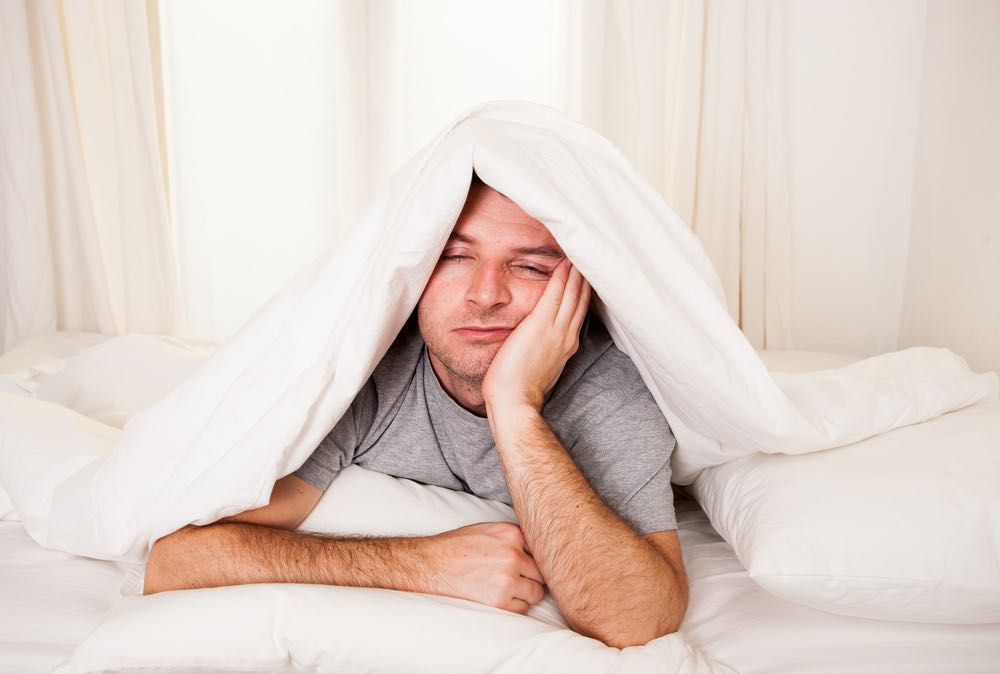Sleep and ADHD: How to Overcome Exhaustion and Actually Revive Your ADHD Brain
Most of us know or have been forewarned that we need seven or eight hours a day to support our brain health, but it’s tough for the ADHD brain to ditch all the fun and succumb to sleep. Still, losing sleep can result in comorbid sleep disorders, mood disorders, dementia, memory and learning problems, heart disease, weight gain, injuries, and depressed immune function to name a few.

ADHD and Sleep Problems
Research has shown that individuals with ADHD-inattentive type can be more likely to have a later bedtime, and individuals with ADHD with hyperactivity/impulsivity are more likely to experience insomnia. Those with the combined type tend to experience both poor sleep and a later bedtime. Studies have also shown that ADHD symptom severity grows with delayed bedtime and daytime sleepiness.
Here are three ways to overcome exhaustion so you can awaken refreshed and revived and keep your brain strong.
Reset Your Circadian Rhythm
When it’s difficult to wind down, the individual with ADHD who is hyperactive and racing around at bedtime can also be showing signs of stress and exhaustion. Even if you’re not hyperactive during the day, that burst of energy you experience in the evening may feel like the perfect time to “hyperfocus” especially when there are less distractions. Despite that, this opportunity for fun and focus could interfere with your sleep.
• Stick to a schedule by waking up at the same time every day. Sleep experts advise you cannot catch up on sleep by sleeping in over the weekend. This irregular pattern can sabotage your circadian rhythm.
• Avoid long naps. If you must nap, take a 30-minute nap and do not nap too close to evening.
• Go to sleep before midnight. Non-REM (rapid-eye-movement sleep) happens in the early part of the night, and deep sleep happens later. Give your body the opportunity for both.
• If you enjoy distraction-free projects in the evening, aim for one project each evening, shorten the duration, and start and end as early as possible. This way, you’re not over-focusing or having so much “fun” that it’s onerous to ease up for a bedtime routine.
Be Alert to a Sleep Disorder
You may also experience daytime sleepiness, multiple awakenings at night, difficulty walking up, or the feeling of being unrefreshed when you awaken.
Some individuals report less reliance on stimulants due to the treatment of sleep disorders.
• Snoring, or sleep-disordered breathing, common to individuals with ADHD, can be treated by removing the tonsils for children, or with a CPAP device for adults.
• If you experience tingling in your legs, or sudden leg movements, you may have restless leg syndrome (RLS), which may cause you to spend a longer amount of time in less restorative sleep. Researchers believe RLS is caused by iron and dopamine deficiencies, so you may want to ask your doctor about monitoring your iron and dopamine levels.
• If you fall asleep suddenly during the day and have trouble sleeping at night you may have narcolepsy, which is common to individuals with ADHD. This is a problem with neurotransmitters, like ADHD, and both can be treated with medication.
• Resist the use of over-the-counter and prescription sleep medication if possible because although it will help you fall asleep faster, it does not allow you to experience natural and restful sleep and you can wake up groggy. Some sedatives can impair memory, concentration, and balance. (Sanjay Gupta, Keep Sharp, 2021).
Make Your Bedroom Stress-Free with Good Sleep Hygiene
This means the bedroom is reserved for sleep and sex only.
• Turn off all electronics at least an hour before bedtime.
• Establish calming rituals before sleep, such as a warm bath, reading, or listening to calming music.
• Do not have stressful conversations in the bedroom or before going to bed. Decide on a day and time to discuss important items that may be stressful.
• Resist the urge to figure out all of life’s problems before bed. Your brain literally declutters and cleans itself out during sleep. Attempt to “sleep on it!”
• Reset Your Circadian Rhythm
• Be Alert to a Sleep Disorder
• Make Your Bedroom Stress-Free with Good Sleep Hygiene
Experiment with these steps and let me know how it goes!
Warmly,
PS. Need more assistance with overcoming exhaustion so you can keep your brain strong?
Contact me for an ADHD Strategy Assessment and we can talk a game plan that you can put into practice right away!
Transforming Parents Lives®

